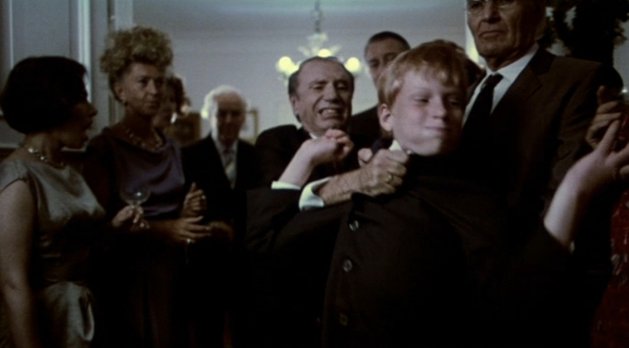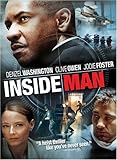From Tampa Bay Times: http://www.tampabay.com/news/humaninterest/brothers-film-is-act-of-love-for-special-needs-sister/2127895
Brother’s movie is act of love for sister with Down syndrome
By Bill Stevens, Times Columnist
Bobby Marinelli slipped into his sister’s bedroom with a script and a yellow sticky note: “Let me know if there is a part you think you’d be good for.”
He knew the answer, of course. His main character: a supermarket bagger with Down syndrome, a young and ambitious woman sidestepping a disability to inspire others.
“I can do this,” Elyse Marinelli told her brother.
This would be different from all the times as a boy Bobby drafted Elyse and his other sister, Tarah, to act in his video projects. He grew up in Hudson with a camera in his hand and by college developed a talent that took him to some of the industry’s greatest stages.
He didn’t expect this one to take off. He didn’t know if he could even raise enough money to break even on expenses. It didn’t matter. This project defined brotherly love.
This one was for Elyse.
• • •
Cynthia Marinelli had no reason to suspect anything was wrong when she went into labor on Dec. 10, 1986. She was 26, strong and healthy. Bobby and Tarah had been perfect and were now curious, active toddlers excited about the new baby. This pregnancy had been like the others, no red flags, no alarms.
A nurse placed Elyse on her mother’s chest. Everything seemed fine at first, except for the webbed fingers.
As Elyse’s condition became clear, Cynthia and her husband, Bob, began charting a course from which they have never wavered. “We thanked God for her,” Cynthia said. “Her heart and all her organs were strong. We took her home and celebrated.”
Bob built his manufacturer sales business as Cynthia took charge of the household, but the entire family raised Elyse. Bobby, in one of his first video efforts, created a program to help her learn the alphabet.
Elyse excelled as a Special Olympian while her sister became one of the best volleyball players in Pasco County. Elyse proudly wore the “manager” title for the Hudson High Cobras, led cheers and did cartwheels across the gym floor. When Tarah graduated in 2003 as salutatorian, she credited Elyse as her inspiration.
Three years later, Tarah helped the University of Tampa volleyball team win the Division II NCAA national championship. Chris Catanach, the national coach of the year, welcomed Elyse as the inspirational heart of the team. The NCAA produced a short documentary that featured Elyse and her family — and those trademark cartwheels.
Exciting, invigorating times, no doubt. But as the older siblings grew up, professional obligations cut into family time. Tarah got married and became a physician’s assistant. Bobby went off to college. Elyse bagged groceries at the Publix at Little Road and Hudson Avenue.
In 2010, Bobby earned a master’s in film production at Florida State University, where he co-wrote and directed a 15-minute comedy that took him around the world.
Waking Eloise was honored in 2011 by the Academy of Television Arts and Sciences. It was selected for the American Pavilion’s Emerging Filmmakers Showcase at the Cannes International Film Festival and earned a Grand Jury Prize at the Dances With Films Festival in Hollywood.
Bobby traveled for months with the film, including to China. He took on other projects that built his resume but kept him on the road.
He missed Elyse. If he ever got a break, he thought, it would be nice to write something just for her.
• • •
Last summer, Bobby wrapped up a project in New Mexico and headed home to Hudson. He dropped the script on Elyse’s bed. He figured it would take at least $3,500 to get started.
In the world of independent filmmaking, a website called Kickstarter is invaluable. Bobby taped Elyse describing the project. It took one day to raise the $3,500, mainly through the generosity of family and friends. Within a month, they had $10,000.
“Elyse and I had a talk,” her brother recalled. “I told her, this is serious. People are giving us a lot of money to do this. You have to make it your job.”
At all hours of the day and night, Cynthia could hear Elyse rehearsing in her room. They went on a brief vacation to Daytona Beach and Elyse stood in the ocean waves, practicing the lines she had memorized. She would portray a supermarket bagger whose courage in asking her boss for a promotion would produce some surprising results.
Bobby scouted locations around Pasco and Hernando counties for filming. He called on friends from other projects who flew in from around the country for three days of shooting in September. After a few months of editing and polishing, he had his gift to his sister, a slick 10-minute film called Check Out. The family debuted it Jan. 25 at the Spring Hill 8 theater complex. Elyse and Cynthia held hands and let the tears roll as they stared at the silver screen.
“It was my biggest night ever,” Elyse said.
A month later, the Marinellis found themselves in Arizona as Check Out was selected for screening at the 19th annual Sedona International Film Festival. Next: the Dances With Films in Hollywood and the Gasparilla in Tampa. Earlier this month, the film was selected as part of the annual Sprout Film Festival at the Metropolitan Museum of Art in New York, a showcase for people with disabilities.
Bobby left last week for Seattle as part of a crew filming a reality series for Fuse TV about roadies on the Vans Warped Tour, which features rock n’ roll bands. He’ll ride a bus for two months and visit 40 cities.
Elyse misses him but is enjoying her celebrity status. She jokes with her mom, calling her “my driver.” It is Elyse who sets the alarm and makes sure Cynthia gets her to Publix on time.
They joined a gym and got a personal trainer. Elyse has lost 25 pounds.
At 26, Elyse seems content with her life but understands her restrictions. She’d like a boyfriend someday. “She’s in love with love,” her mom says. “We’ve agreed she should just let life happen.”
For now, Elyse hopes that might include more acting opportunities. On a yellow sticky note like the one Bobby had attached to the script, she printed her feelings:
“I like to act and pretend to be something other than myself.”







